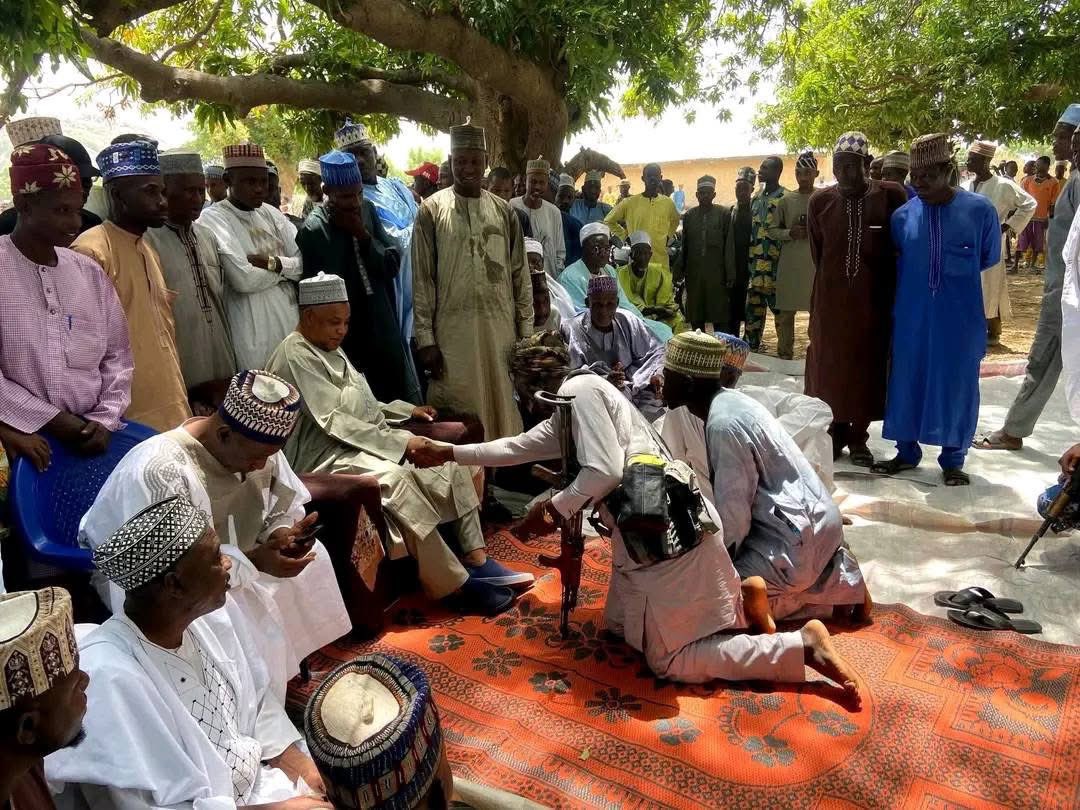Crime & Law
Real reason we are negotiating with bandits – Sokoto govt

The Sokoto State Government has justified its recent decision to engage in dialogue with bandits who voluntarily disarm, framing the move as a proactive approach to curbing insecurity and restoring stability across the state.
This clarification follows criticism from social media user Basharu Altine Guyawa, who questioned the administration’s willingness to negotiate with criminal elements.
In response, the Special Adviser on Security to Governor Ahmed Aliyu, Colonel Ahmed Usman (Rtd), dismissed suggestions that the talks were a sign of weakness.
“The attention of the Sokoto State Government has been drawn to comments made by Mr. Basharu Altine Giyawa, a social media commentator, criticizing our administration’s efforts to explore non-violent pathways toward ending the cycle of banditry and insecurity affecting parts of our dear state,” he said.
He explained that Governor Aliyu’s strategy combines both military action and peaceful dialogue as part of a comprehensive plan to restore order.
“While we respect the right of every citizen to express their opinion, it is important to set the record straight and clarify the rationale behind Governor Ahmed Aliyu’s decision to adopt a multifaceted security strategy that includes dialogue and reconciliation with repentant bandits,” the adviser stated.
He also pointed out that Guyawa had previously expressed interest in mediating with armed groups, calling his recent criticisms contradictory.
“It is worth noting, with some irony, that Mr. Giyawa himself had at some point expressed willingness to mediate between the state and those who have taken up arms. It is therefore surprising that he now criticizes a similar effort by the government he once sought to assist. This inconsistency calls into question the sincerity of his current stance.”
Usman emphasized that the approach is not about leniency, but rather a measured solution rooted in both military and civil considerations.
“Let it be clear: the government is not negotiating out of weakness, nor are we compromising justice. What we are doing is embracing a pragmatic, human-centered approach — the stick-and-carrot model, consistent with the military’s kinetic and non-kinetic doctrine.”
He highlighted the severe impact of insecurity on rural communities, especially in local government areas like Rabah, Goronyo, Isa, and Sabon Birni, where people have been displaced, farming halted, and local economies disrupted.
“Our people in Rabah, Goronyo, Isa, Sabon Birni, and other affected LGAs are living with the daily trauma of displacement. Farmers have abandoned their fields, food production has dropped, and economic activities have come to a halt in many communities. This has direct consequences on food security and inflation across the state,” be said.


























